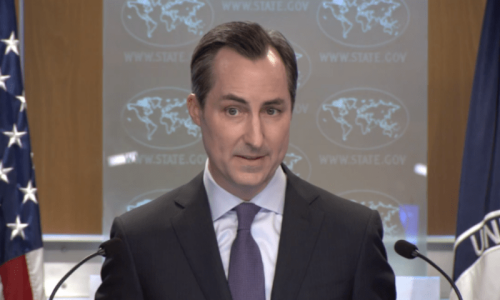THOSE speaking for the government had always seemed confident in its ability to get the desired constitutional amendments passed, even though it lacks a two-thirds majority. Time has revealed why. When the last attempt was made to bulldoze the constitutional package through parliament, an earlier interpretation of Article 63-A, which held that votes against party directions would not be counted in special cases, was in force, insulating individual lawmakers from intimidation. But on Thursday, the leaders of four opposition parties reported that their lawmakers were being bribed, threatened or coerced to vote in favour of the government. It seems that a new ruling discarding the earlier interpretation of 63-A, issued two weeks ago by a Supreme Court bench led by the chief justice, had stripped them of the protections they had enjoyed. It bears noting that the court’s ‘restoration’ of Article 63-A was, in principle, meant to resurrect lawmakers’ right to vote according to their conscience, even in cases where defying the party line can mean ejection from parliament. However, observers had warned that the context mattered, and the ruling would be abused for nefarious purposes. Those fears now seem to have been confirmed.
Some lawmakers alleged that they were offered billions for their vote; others detailed shocking instances of harassment and intimidation by police and intelligence operatives, seemingly intended to force their hand. Alarmingly, the campaign does not seem to have been limited to lawmakers: several legislators from different parties complained that families were also being targeted by the state. There were disturbing claims about the abduction and torture of loved ones to force lawmakers to vote a certain way. If these accounts and allegations are true, the government must be asked why it thought it appropriate that its constitutional amendments, which were supposedly in the country’s best interests, would be enacted through patently anti-democratic means. When a parliamentary committee was already debating the proposed legislation, why was the need felt to resort to these deplorable tactics? After all, if some parties are to be believed, the political process did see the opposition and government agreeing to amendments that appeared to have wider acceptance. There was no need to vitiate the atmosphere with brutish displays of force. The government should have just let the chips fall where they may.
Published in Dawn, October 19th, 2024












































Dear visitor, the comments section is undergoing an overhaul and will return soon.